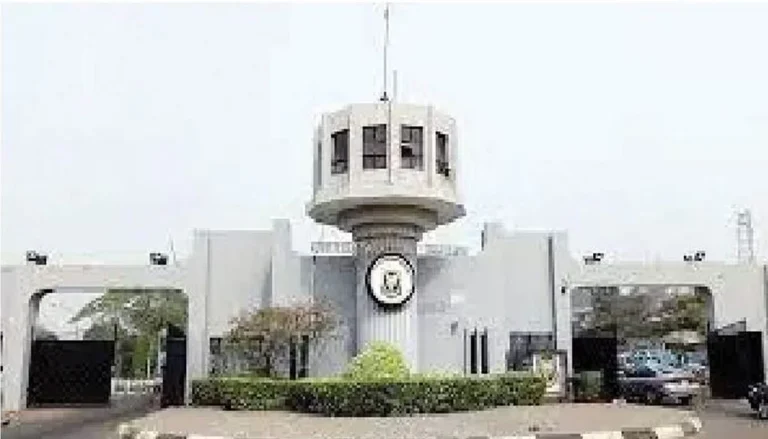
Expenditures on allowances, overseas travels, office supplies, aeroplane maintenance, and other recurring costs totaled N1.71tn for the 36 member states of the federation in the first nine months of 2023.
That is based on a review of their budget performance reports that were obtained from Open Nigerian States, a website that stores government budget data and is supported by budgIT. The PUNCH adds that 24 states were included in the analysis of this research, with 24 states having data for the first three quarters of the year and 12 states having data for the first two quarters.
During the data period that was available, the states spent a total of N802.43bn on salaries. However, in order to concentrate on other recurring expenditure categories, this article isolated this data set. Adding salaries would have brought total recurring expenditure to N2.52tn.
Foreign and domestic travel, entertainment, food, honorarium/sitting allowance, wardrobe allowance, telephone, electricity, stationery, special days, welfare, aircraft maintenance, and other recurring expenses are all detailed in this report.
Just 30 of the 36 states have actually distributed the N87.45 billion in security votes. Also, by the end of the third quarter of 2023, the states’ total borrowings had increased to N988bn.
Expenditures totaling N17.61bn were incurred by Abia in the first nine months of 2023 for a wide range of purposes, including but not limited to: housing/rent allowance, meal subsidy, entertainment allowance, wardrobe allowance, social benefits, pension, gratuity, internet access charge, telephone charges, local and international travel, office stationeries, maintenance services, accounting and consulting, fuel, and miscellaneous expenses.
Over the first half of the fiscal year, Akwa Ibom spent a whopping N92.54 billion on things like allowances and social contributions, social benefits, transportation, utilities (including things like electricity chargers and Internet access charges), office supplies, drugs, laboratory and medical equipment, maintenance, training and more. Spending on hosting and mobilising political associations and interest groups has totaled N10 million, with an additional N841.83 million going towards entertainment at gatherings.
As of the conclusion of Q3, 2023, Adamawa had spent a total of N40.90bn on non-salary expenditure. The following items make up its recurring expenditure: N1.29 billion for furniture allowance, N1.19 billion for domestic and international travel and training, N214.37 million for office supplies and consumables, and N413.32 million for food and drinks.
By the end of Q2, 2023, Anambra had spent N15.17bn on non-salary expenses, while Bauchi had spent N70.25bn. Spending on non-salary recurring expenses amounted to N58.26 by the end of Q2, 2023, for Bayelsa. Training and travel cost N2.18 billion, welfare packages N1.81 billion, burial logistics N78.60 million, town hall meetings N1.48 billion, praise night/thanksgiving N48.20 million, marriage ceremony support N17.70 billion, and many more.
A total of N34.44 billion was spent by Benue on anything other than salaries. It spent N1.23 billion on supplies and commodities including books and office stationery, N7.06 billion on security votes, N434.17 million on welfare packages, and N387.55 million on special day festivities.
With a total of N152.15 billion, Ebonyi N30.91 billion, Ebo N41.11 billion, Borno N32.63 billion, Cross Rivers N43.71 billion, and Delta N152.15 billion as of the end of Q3, 2023. The non-salary expenditure in Ekiti was N31.33bn as of the end of Q2, 2023. Transportation costs (both domestic and foreign) amount to 2.74 billion naira, while welfare benefits, refreshments, honorarium, seating allowances, and other miscellaneous items amount to 1.97 billion naira.
Gombe spent N24.73 billion in Q1 and Q2 of 2023 and Enugu spent N33.36 billion as of the end of Q3 of the same year. With an expenditure of N58.21bn, N1.21bn went into food and drink, N866.81m for welfare packages, and N3.26bn towards allowances and other miscellaneous expenses. Apart from salaries, Jigawa spent N49.64bn on things like allowances (N22.07bn), transportation (N1.18bn), and supplies (N1.83bn), which included things like pharmaceuticals, vaccinations, medical equipment, office supplies, and more.
With a total of N27.87bn spent in Q3 by Kaduna, N17.79bn in Q1 and Q2 by Kano, N40.49bn in Katsina, N24.51bn in Kebbi, N41.19bn in Kwara, and N58.02bn in Kogi, are the states in question. Non-salary expenditure in Lagos amounted to N289.49bn. The following items are included in the list of expenditures: severance pay for political office appointees, aircraft maintenance, plant and generator costs, special days and celebrations, special duties, meeting servicing, public welfare packages, enforcement expenses, and more. The total amount is N741.34 million.
As of Q3, 2023, the non-salary expenditure in Nasarawa was N28.13bn, in Niger it was N23.43bn, in Ogun it was N49.27bn, in Ondo it was N59.70bn, in Osun it was N42.59bn, in Oyo it was N24.52bn, in Rivers it was N51.96bn, in Sokoto it was N20.89bn, in Taraba N24.73bn, Yobe N25.07bn (as of Q2, 2023), and in Zamfara it was N29.14bn.
Over the time frame considered, states spent a total of N4.59tn, which includes capital expenditures. Reduced revenues and macroeconomic constraints may cause states to fall short of their 2022 spending target of N8.2tn. Worries that states are frittering away money on things that don’t matter are, nevertheless, on the rise.
As the country’s economic woes have become worse, government spending has been the subject of more criticism. Lagos State was recently criticised by Funso Doherty, the Action Democratic Congress’s gubernatorial candidate in the state. The public’s reaction to this has been one of outrage.
He informed the government in a letter that he reviewed the report from the Public Procurement Agency detailing the public procurement awards made by LASG, its ministries, and department agencies during the second and third quarters of 2023.
It is my belief that certain honours merit closer examination, and I have included a timetable outlining them here.
State governments borrowed a total of N988.48bn during the studied period to supplement FAAC grants and internally produced revenue. Thirty-three subnationals’ borrowings from multilateral lenders like the World Bank, the International Monetary Fund, Afrexim, and the African Development Bank rose to N452.47 billion, while 29 states are currently owed N536.01 billion by banking institutions and other government entities.
With a total of N200 billion, Lagos state’s internal debt was found to be the highest, followed by Delta with N70 billion and Oyo with N58.87 billion.
Also, out of all the states that have taken out loans from multilateral lenders, Delta State has the largest sum at N71.45 billion, followed by Lagos at N51.36 billion, Akwa-Ibom at N27.04 billion, and Ogun at N22.82 billion.
The state governments reportedly borrowed over N46.17 billion from three different banks in order to cover salaries from January to June of 2023.
A rising worry among economists is the practise of borrowing money for ongoing expenses. “The situation is bad, but most states do not have enough in terms of internally generated revenue,” economist and former Vice-Chancellor of the University of Uyo, Prof. Akpan Ekpo, told our correspondent relatively recently. There is a serious threat since many states cannot pay their employees, not even with the money given to them by the federal government. Borrowing money to cover salaries is not a good idea.
Capital projects should be financed by borrowing. In order to raise their IGRs, states must come up with innovative solutions. The economy will suffer if they keep taking out loans to pay salaries.
“Given the present economic crisis, they might not have a choice but to borrow money,” added Dr. Aliyu Ilias, a development economist. The issue of having to borrow money to pay salaries, though, is growing. Borrowing money for ongoing expenses has to halt. Borrowing money for capital expenditures is quite acceptable. As a result, we’re getting ourselves into even more problems.
At the same time, the Ondo State Government has refuted claims in the media that Mr. Rotimi Akeredolu, the governor of the state, spent N7.3 billion without getting consent from the state House of Assembly.
In a statement released on Tuesday, Mr. Richard Olatunde, the chief press secretary to the governor, stated unambiguously that the total amount of palliative funds received from the federal government was N7.3bn.
These monies were set aside under the “contingency” heading so that they could cover unexpected costs that weren’t in the original budget but were still considered important throughout the fiscal year.
“The initial allocation for the 2023 budget’s contingency fund was N1.07bn, but the extra N7bn is a result of funds received from the federal government, specifically for palliatives intended to mitigate the impact of fuel subsidy removal.








